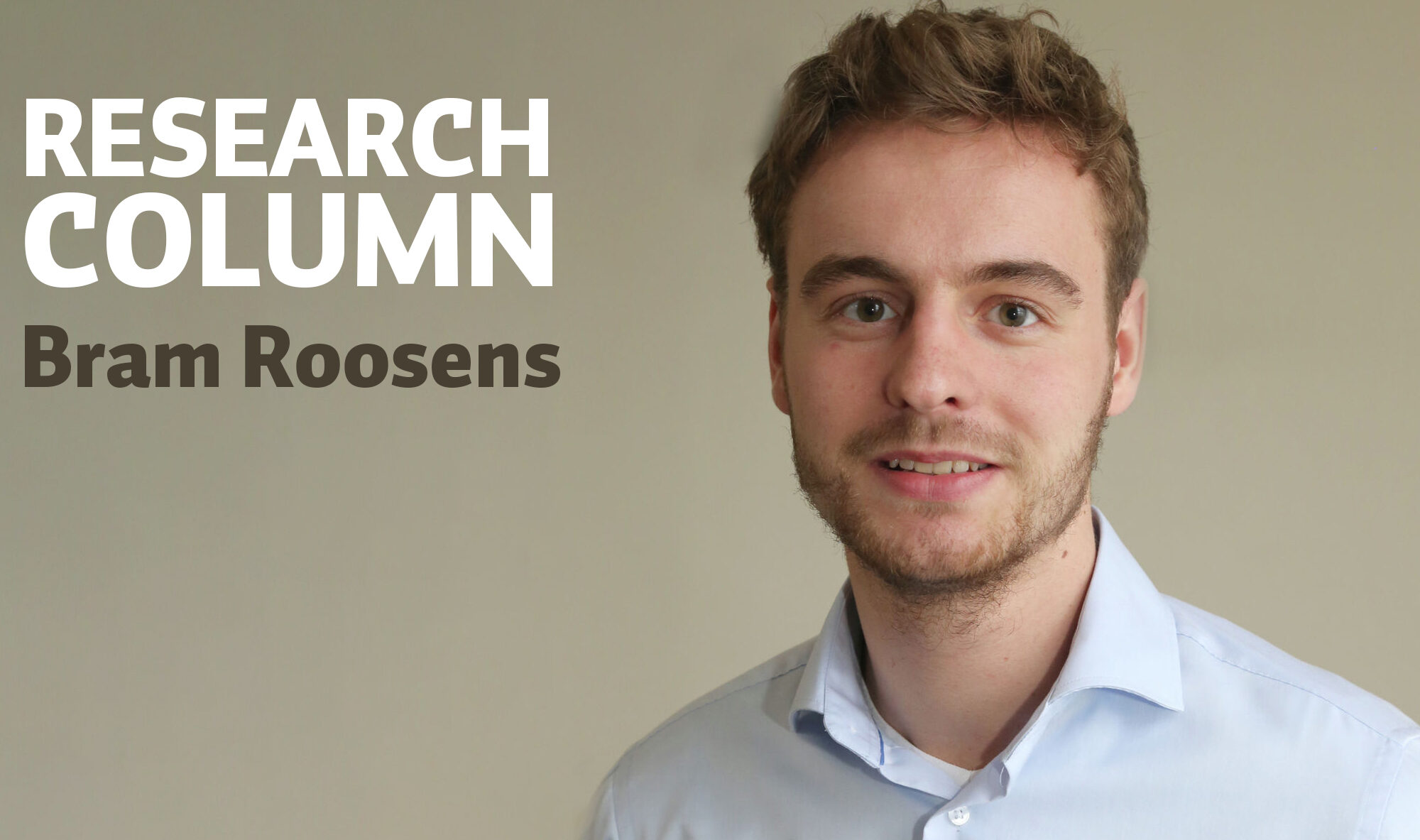When I started my PhD back in 2014, I had no clue that I would end up where I am today. Doctoral studies had never been on my list with ‘life goals’ before applying for a research and teaching assistant position at the department of Marketing at the Faculty of Business and Economics.
Curious about what the position was all about, I went for an interview, mainly triggered by my interest in the field of marketing and innovation. Although my job interview was far from a home run, I must have said some things right, because I was the lucky one that was offered the position. Looking back at it, it’s been a series of ‘accidental’ events that have led to the start of my PhD journey, and guided me through it. Some may say you should not let your goals in life depend on just ‘good luck’. However, I believe it’s impossible to foresee all future opportunities. Hence, I decided to write a little piece on how cultivating a curious, serendipitous mindset has helped me throughout my PhD.
What is serendipity?
“Serendipity – a beautiful word, right? – lies at the basis of many great scientific breakthroughs: while studying one thing, a researcher finds something way more impactful than what he or she was looking for. “
Arthur Fry was looking to develop the strongest glue ever, but his failure to do so brought him to the invention of post-it notes. Wilhelm Röntgen accidentally found X-rays while tinkering with a cathode-ray tube.
However, such discoveries, and hence serendipity, are not just about good luck. It’s about being open to the unexpected and getting involved in things in order to obtain something without knowing what it will be exactly. More and more research is digging into the role of serendipity in academic research, and look if there is evidence that encouraging and funding serendipity may be the best way to generate discoveries. Interesting discussion.
Whether you should search for serendipity in your research is highly dependent on the context in which you work and the objectives you’ve set with your advisors. However, in this column, I would like to stand up for being more serendipitous in other aspects of a PhD, and life in general. This is about what I learned so far. I will give some examples, not to say that I did things right, but to inspire how serendipity may help people in their work and future professional career.
Examples of serendipity in my PhD
Young Research Network
I was actively involved in the Young Research Network of the faculty for the last four years. It was often challenging to find time for organising and attending workshops and events, and I was not the only one struggling with these time constraints. Moreover, it is often hard to gain immediate benefits from things like network drinks or a creativity workshop – apart from the pleasure of talking to nice people and having a drink of course. Therefore, such events are easy to skip with the excuse of having ‘better things to do’.
“How I tried to see it, was that you had an incredible opportunity to build a genuine connection with a bunch of smart people, that potentially will be working for top research centers, journals, companies, governments, etc. in the near and further future.”
That’s why I’ve put my time and effort into this network. Efforts I’m already benefiting from today, by knowing some great people and minds, with whom I can get in touch to pitch some ideas or thoughts, and hopefully will continue to benefit from in the future.
VITO case study
Similarly, after some years doing research from behind my desk, I started case study research with VITO. This research brought me the insights I needed for my study, but, more importantly, got me in touch with numerous companies where I could do interviews, and where I could learn from experiences and perspectives. By observing inter-organizational dynamics in innovation projects, I also learned a lot about the tools and methodologies used, something I was able to use, later on, when teaching at UNamur and in my job today as an innovation consultant at MTI². Two positions I, by the way, also obtained because of earlier ‘time investments’ in the organisational support of academic conferences.
My role in these conferences, doing mostly graphic design and website projects, is founded on a set of skills I started developing ten years ago. I did not start learning them because I could go to more conferences when doing a PhD. This was a side effect – or should I say site effect? – but one that has opened doors. More and more it seems to become a unique asset that impacts my professional career.
What I learned?
“Being open for things that may create opportunities I couldn’t imagine at first.”
I could go on and on with examples, but the bottom line will remain the same. For myself, the most important learning point from my PhD is to always try to talk to new people and take up new challenges, because you never know how you will benefit from it unless you do it. Sure, I did some things that didn’t get me anywhere (yet). But I always learned something, and on several occasions, they got me to places I never imagined getting to.
Again, I’m still learning as well. It’s not always easy to keep a serendipitous mindset. But if we all keep trying to find things we’re not looking for, I’m sure we’ll meet great people – and maybe each other – along the way!


